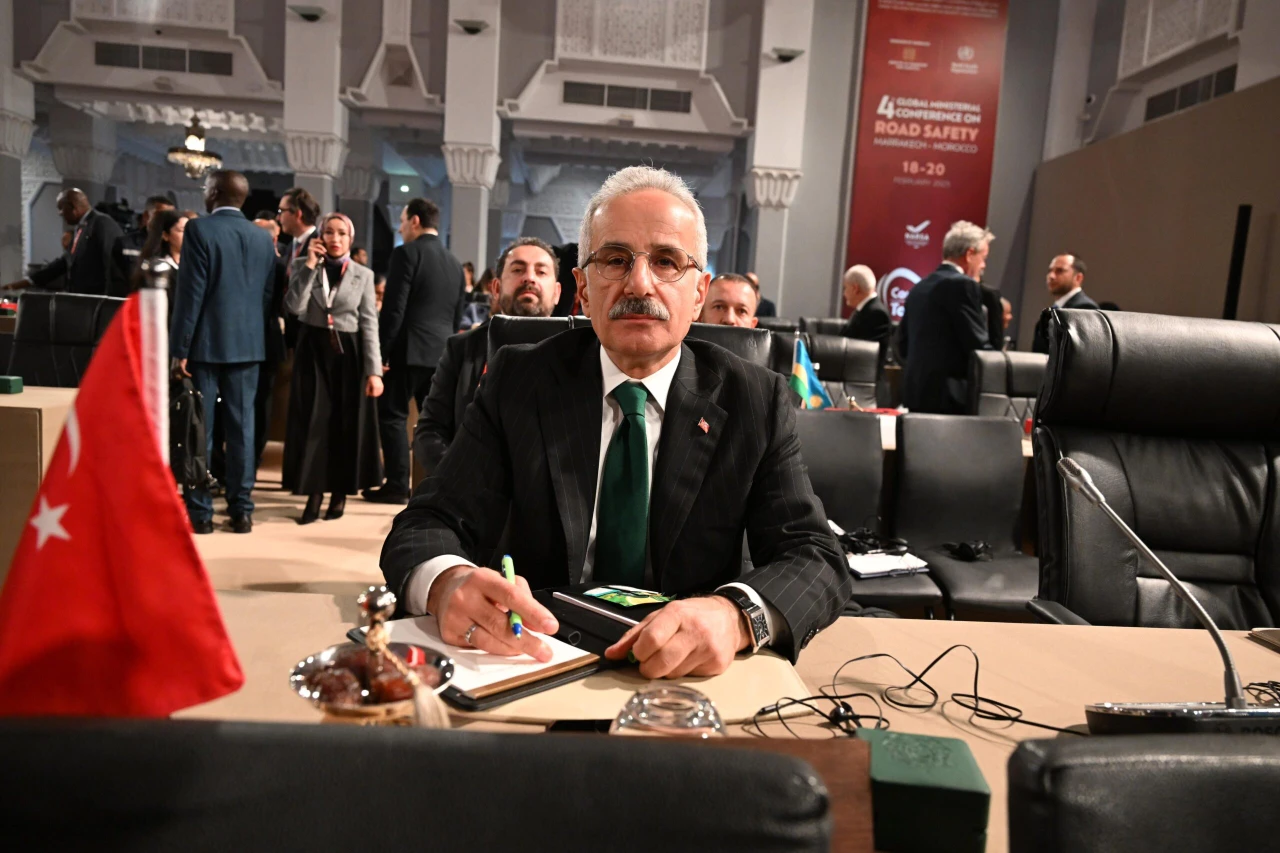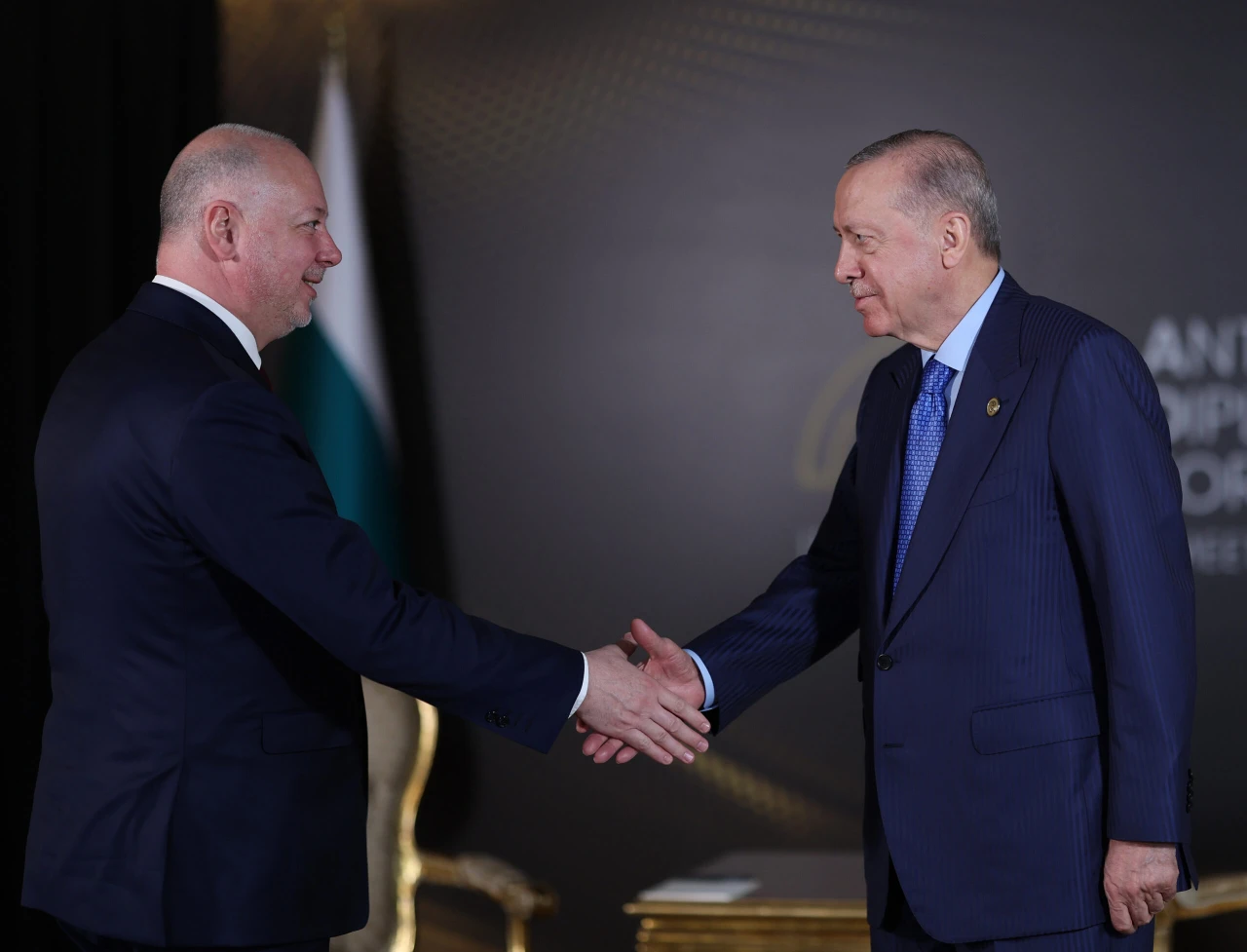US Congress may reconsider F-35 sales to Türkiye
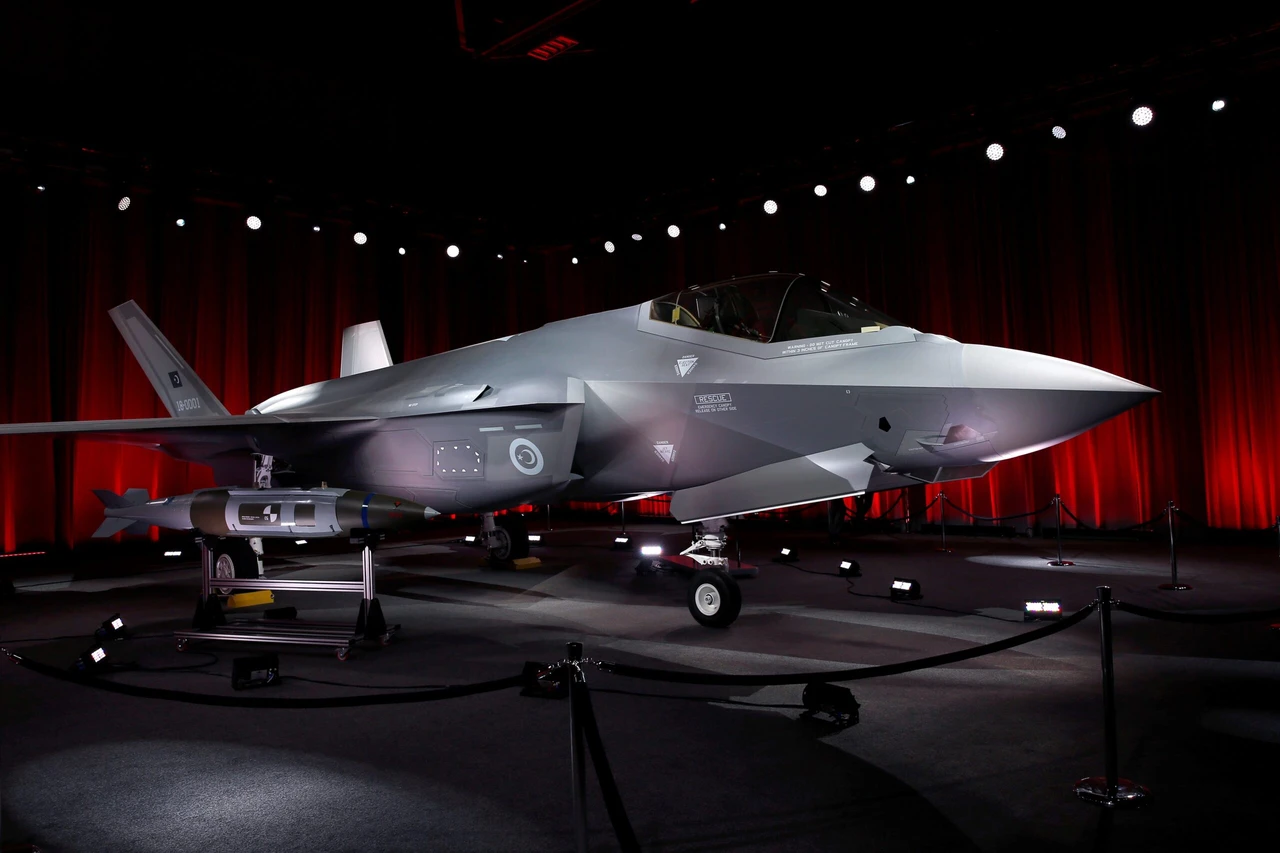 A F-35 fighter jet is seen as Türkiye takes delivery of its first F-35 fighter jet with a ceremony at the Lockheed Martin in Forth Worth, Texas, United States on June 21, 2018. (AA Photo)
A F-35 fighter jet is seen as Türkiye takes delivery of its first F-35 fighter jet with a ceremony at the Lockheed Martin in Forth Worth, Texas, United States on June 21, 2018. (AA Photo)
The U.S. Congress may revisit Türkiye’s potential participation in the F-35 fighter jet program following Donald Trump’s election and recent signals in shifting the U.S.-Türkiye defense relations to a “better ground”, according to a report by the Congressional Research Service (CRS).
Background: Türkiye’s removal from F-35 program
Türkiye was one of the eight original international partners in the F-35 program and a NATO ally. However, in July 2019, the United States expelled Türkiye from the program due to concerns over its purchase of the Russian S-400 air defense system.
The U.S. government argued that the S-400 could compromise the F-35’s stealth capabilities, leading to Türkiye’s removal from the program and the imposition of sanctions under the Countering America’s Adversaries Through Sanctions Act (CAATSA).
After Türkiye’s exclusion from the F-35 fighter jet program due to the S-400 acquisition, the U.S. owes Türkiye $1.45 billion for its contributions to the program. Türkiye is demanding either reinstatement in the F-35 program or full reimbursement of the amount already paid.
Ankara has reiterated its commitment to the program and expects a resolution from Trump’s administration.
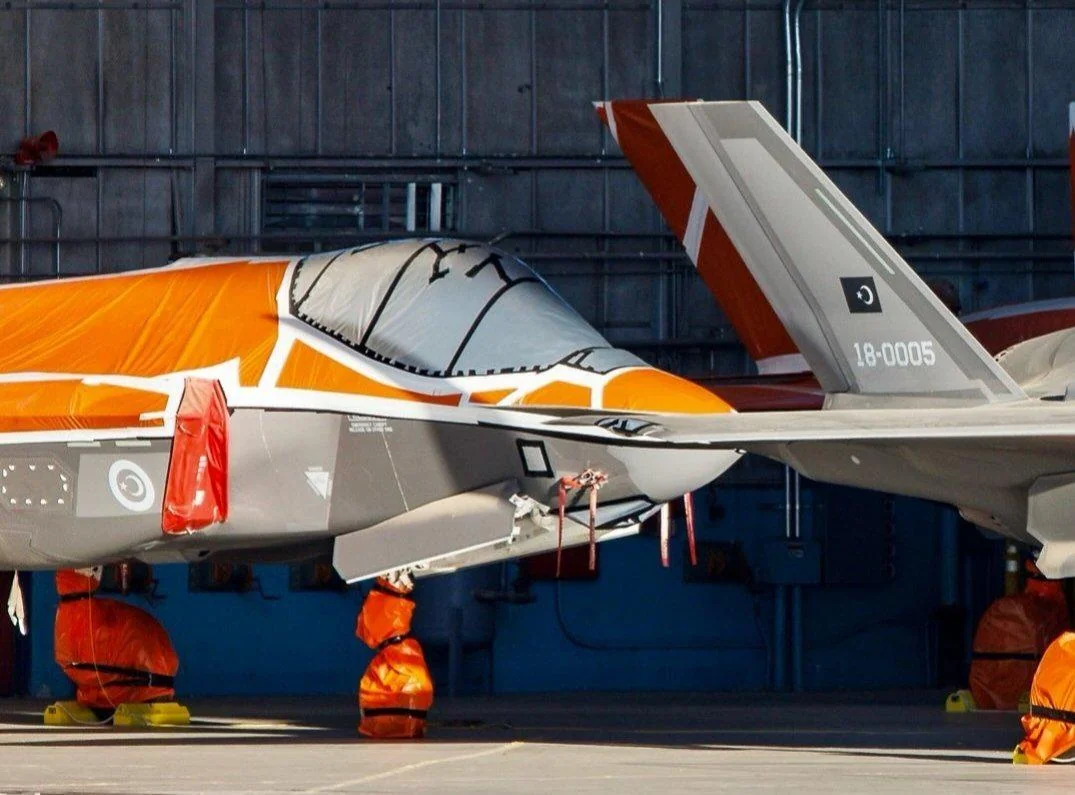
Renewed discussion on F-35s following F-16 sales to Türkiye
In January 2024, the U.S. approved the sale of F-16 fighter jets to Türkiye, reigniting discussions on whether Türkiye could also be allowed to re-enter the F-35 program.
The CRS report indicates that Congress may reconsider Türkiye’s participation, though no formal decision has been made.
Our request for 40 F-35s has been officially communicated to our counterparts. Regarding the F-35, there is a payment we have made before, and 6 aircraft have been taken to the hangar. However, for the first time, a NATO member country has not been delivered by imposing sanctions (CAATSA).
We have been saying from the very beginning that this sanction is wrong. Our expectation is that our allies take decisions in accordance with the spirit of the alliance and the common security perspective and that all sanctions, implicit and explicit, are lifted.
Turkish Ministry of Defense
Turkish Defense Minister Yasar Guler recently revealed that the successful development of Türkiye’s indigenous fifth-generation fighter jet KAAN has prompted a shift in U.S. perspectives regarding F-35 fighter jets.
“After the Americans saw that we could build KAAN and witnessed its flight, their thoughts about the F-35 changed somewhat. They are now indicating they might provide F-35s,” Guler stated during the Ministry’s 2025 budget discussions in parliament.
The minister outlined Türkiye’s dual approach to re-entering the F-35 program, from which it was expelled following its acquisition of Russian S-400 air defense systems. “We are both insisting on regaining our production share and have expressed our interest in purchasing F-35s,” he explained.
“They themselves have expressed that they can give us F-35s. There has been no progress on this issue. We insist that our production share be given back, and we have also expressed our desire to buy 40 F-35s,” Guler concluded.
The F-35 program is the Department of Defense’s largest international cooperative project, involving multiple NATO allies to reduce costs and expand production.
Countries participating in the program are classified based on their financial contributions, with higher investment levels granting greater access to aircraft development and technology.
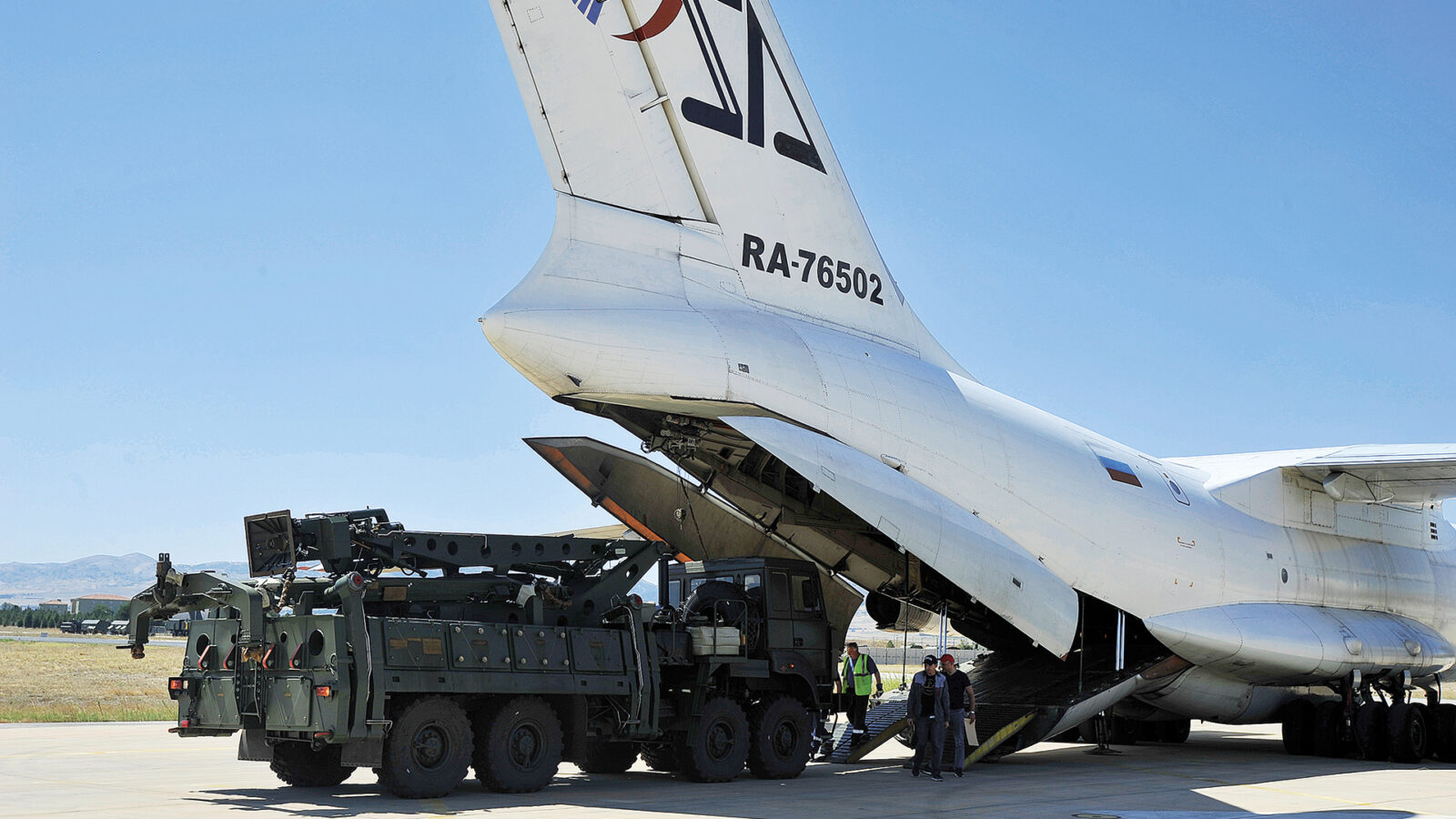
Potential implications of Türkiye’s reentry
If Congress decides to reconsider Türkiye’s role in the F-35 program, several factors will be assessed, including:
- Türkiye’s commitment to NATO security protocols.
- The geopolitical implications of restoring defense ties.
- The potential impact on U.S.-Russia relations given Türkiye’s S-400 acquisition.
Despite Türkiye’s efforts to resolve the issue, including Guler’s recent remarks rejecting U.S. conditions on the S-400, the U.S. insists that the S-400 system still poses a risk to NATO’s security framework.
While Türkiye was previously a Level III partner in the F-35 program—alongside Australia, Denmark, Norway, and Canada—its removal disrupted its access to aircraft procurement and production roles within the project.
The U.S. seems to be open to discussions, any resolution on the F-35 program is contingent on Türkiye’s resolution of the S-400 dispute, with the U.S. emphasizing that future talks on F-35s will only be possible if Türkiye adheres to NATO’s security standards.
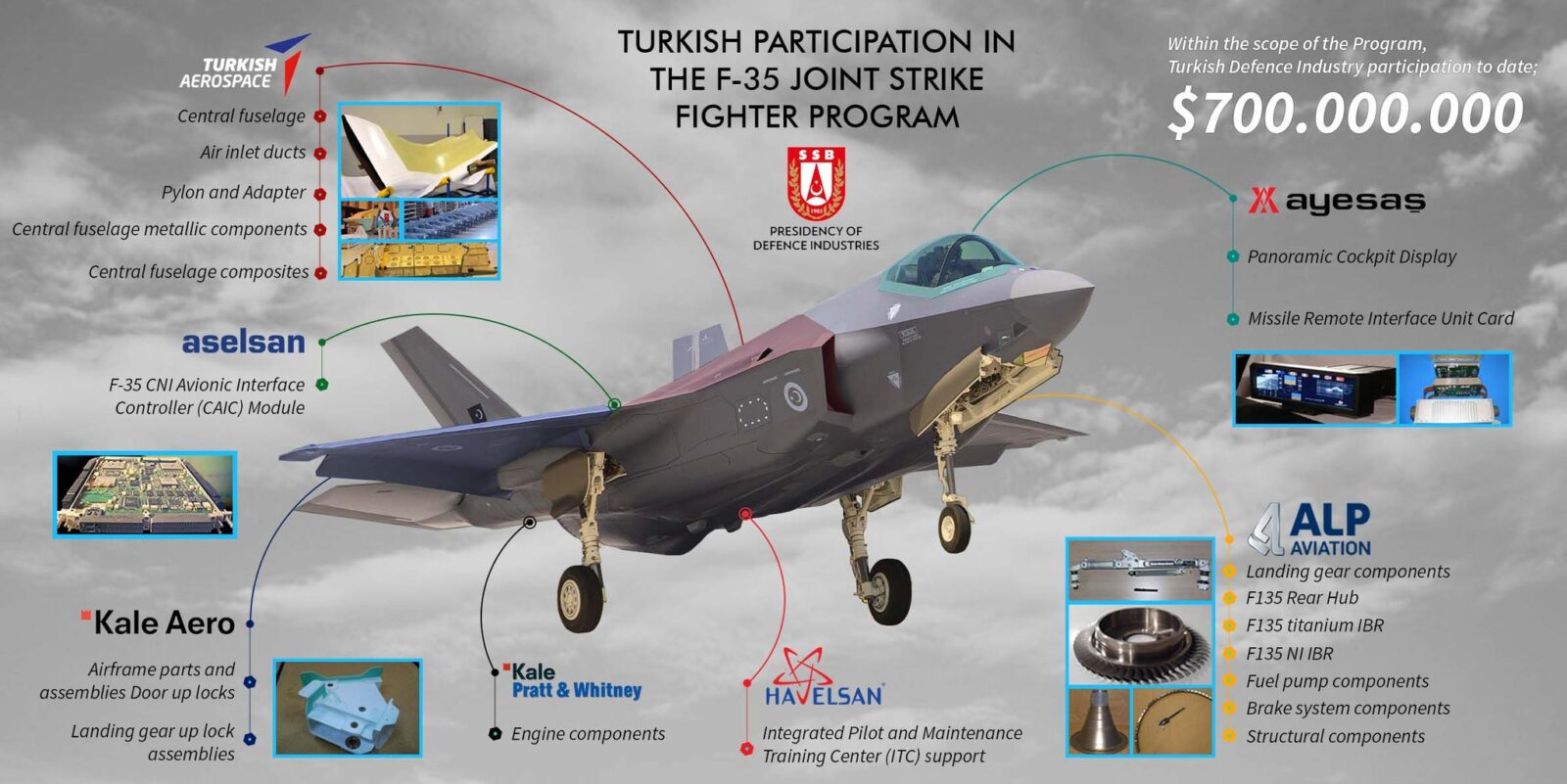
International and NATO considerations
Türkiye’s initial involvement in the F-35 program was part of a broader NATO defense strategy. Additionally, Türkiye’s exclusion led to adjustments in supply chain logistics for F-35 production.
